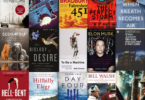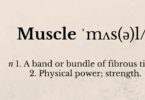Here’s the bad news: the world is often a terrible, brutally self-interested place. Here’s the good news: well, at least now you know.
Real talk, though: looking for someone to blame does essentially nothing, especially if all you’re planning to do when you find them is yell at them. Talking about how ‘shocked’ and ‘saddened’ you are does nothing. Flapping your arms and running in a circle does nothing.
You, of course, realise this, and want to do Something.
So where do you start?
For starters, realise that you can’t fix everything: there are too many things to fix. Climate change, homophobia, racism, abortion rights, women’s rights, human rights, gun control, education – is your chest tightening up just reading that list? Mine is. Trying to juggle all of the things in that list at one time – even just mentally – is like trying to juggle seven or more of anything: you might manage it for about ten seconds, if you’re an incredibly good juggler. Then: sad times.
Here’s what to do instead:
- Pick one thing. Probably the one you’re most anxious about: maybe the one where you think you can affect the most change.
- Work out the simplest thing you can do to start actively helping in that area. Now simplify it more. Make it granular. If it’s ‘Write to your locally elected representative’, then do you know that person’s email address? If you’re going to do it by post, do you have any stamps? If it’s ‘Volunteer at your local women’s refuge’, then do you know where that place is? If it’s ‘Educate people about the realities of climate change’, then do you have a forty-second elevator-pitch version of why climate change is a problem? If you don’t even know how to start helping in your chosen area, then your first thing to do is ‘find out’: get in touch with a charity or organisation that can explain it to you or give you some suggestions. Write this process down.
- Eliminate the things you can’t do. They’re either a sign that there’s a better ‘first thing’ that you’ve missed, or something that you shouldn’t be worrying about. Related, but not the same: if one of the things you could do will make the others easier, put that first.
- Do the first thing. If you can do the first thing now, today, in under two minutes, then just get it done. If you can’t, write it down on a post-it or a draft email or a Google doc somewhere you can find it. You should never be without a ‘next thing’ to do. When you feel helpless, or hopeless, just gently come back to that Next Thing.
- Repeat as necessary
It’s easy, probably natural, to feel overwhelmed. There’s a lot wrong, and a lot that needs fixing. But trying to fix it all at once is like trying to wallpaper your house at the same as you’re fixing a leaky sink: it’s mad, and you wouldn’t do it. Pick one thing. Just one.
Here’s a story to close things out, from Charles Duhigg’s The Power Of Habit.
When gay rights organizations started campaigning against homophobia in the late 1960s, their initial efforts yielded only a string of failures. They pushed to repeal laws used to prosecute gays and were roundly defeated in state legislatures. Teachers tried to create curriculums to counsel gay teens, and were fired for suggesting that homosexuality should be embraced. It seemed like the gay community’s larger goals—ending discrimination and police harassment, convincing the American Psychiatric Association to stop defining homosexuality as a mental disease—were out of reach.
Then, in the early 1970s, the American Library Association’s Task Force on Gay Liberation decided to focus on one modest goal: convincing the Library of Congress to reclassify books about the gay liberation movement from HQ 71–471 (“Abnormal Sexual Relations, Including Sexual Crimes”) to another, less pejorative category.17 In 1972, after receiving a letter requesting the reclassification, the Library of Congress agreed to make the shift, reclassifying books into a newly created category, HQ 76.5 (“Homosexuality, Lesbianism—Gay Liberation Movement, Homophile Movement”). It was a minor tweak of an old institutional habit regarding how books were shelved, but the effect was electrifying. News of the new policy spread across the nation. Gay rights organizations, citing the victory, started fund-raising drives. Within a few years, openly gay politicians were running for political office in California, New York, Massachusetts, and Oregon, many of them citing the Library of Congress’s decision as inspiration. In 1973, the American Psychiatric Association, after years of internal debate, rewrote the definition of homosexuality so it was no longer a mental illness—paving the way for the passage of state laws that made it illegal to discriminate against people because of their sexual orientation. And it all began with one small win.
One thing, and then another one, and then another one. LIVE HARD!







Leave a Comment